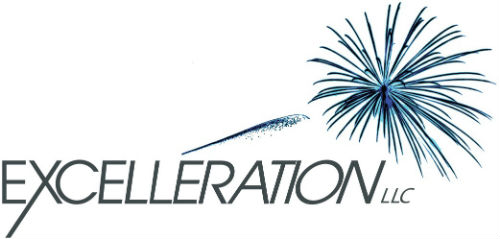Career Change Coaching for Lawyers
At some point, most lawyers will ask themselves “Is this really want I want to do?” or “What other jobs would I like better?” Although everyone has these thoughts occasionally, if you have been consistently unhappy with your career for a many months or years, or if you have long-held career ambitions that have been on hold indefinitely, it might be a good time to try coaching. Sometimes we assume that time and experience will automatically lead to insight and opportunity, but most lawyers benefit from an external support structure to help them find the right fit for their interests and personalities.
In the career transition coaching track, I work with:
Lawyers who are seeking to change jobs and want to choose wisely
Lawyers who are trying to figure out what career path will lead to the greatest satisfaction
Lawyers who have had negative career experiences which cause them to second guess their current career trajectory
Lawyers who want to improve their networking skills to support their job search
Lawyers who have an unusual career trajectory and who are having trouble communicating their value to contacts and prospective employers
Lawyers who want to move from a law firm to in-house, government or a non-profit, or vice versa
Senior lawyers who are close to retirement and have the freedom to choose a truly inspiring path
Lawyers who know what they want but who have had trouble landing the new job
Lawyers who are seeking to leave the law entirely
Please check out our other career coaching tracks if you are more focused on any of the following:
Satisfaction in Your Current Role
Getting Promoted to Partner
Business Development or
Leadership
Common Coaching Topics for Lawyers Seeking a Career Change
Each coaching engagement is customized to the individual client. Nevertheless, in the “Career Change” coaching track, we typically focus on the four elements of a successful career transition: (1) Identifying an inspiring career path; (2) Strong messaging and materials, (3) Networking, a.k.a. engagement with your community; and (4) Persistence/Resilience
Each coaching engagement is customized to the individual client. Nevertheless, we typically
Identify an Inspiring Career Path
You want a rewarding career that fits your strengths and personality while also meeting your practical needs. For some lawyers, making a difference in the world is a major driver. Others may be more focused on status or flexibility. One size does not fit all. Although, some people just get lucky, for most lawyers, identifying a satisfying career path takes some time and energy. Our coaching offers structure and guidance to help you through this process.
Clarify what you really want in a job
Identify your key strengths
Explore values and preferences
Identify your transferable skills
Navigate external pressures and obligation
Overcome risk aversion so as to make wise choices
Strong Messaging & Materials
How you communicate about your career and job search is critically important. Your resume, how you articulate your goals, how you describe your career trajectory, how you respond to interview questions – all of these are part of your messaging and can affect whether you receive introductions, interviews and offers. Our career transition coaching helps you to design a clear, coherent message that puts your best foot forward, and increases the likelihood of receiving opportunities and offers.
Identify how best to convey your strengths to prospective employers
Learn best practices for optimizing your resume
Develop strategies for communicating effectively about any sensitive aspects of your job history
Enhance your skill and confidence with interviewing
Networking, a.k.a. Engaging with Your Community
Most people get jobs through people they know. Both your close contacts like friends and family and your more peripheral contacts like law school acquaintances and members of networking groups are very important to your job search. This program provides step-by-step guidance for reaching out to your existing communities and developing a network in your target areas.
Learn best practices for asking for assistance and job leads
Fine-tune your approach to informational interviews
Reach out to your existing network using twelve different exercises and approaches
Expand the network of people with whom you share information and give and receive job leads
Persistence and Resilience
Staying motivated and energized as you continue to network and send out applications can be very challenging. Fortunately, recent decades have yielded thousands of studies that provide scientifically based protocols for building resilience and grit. Our coaching uses a variety of approaches to help you to stay motivated and focused and find that job that you will really love.
Increase resilience using five highly effective approaches
Improve your mood and motivation, using scientifically validated techniques
Manage emotional upsets both efficiently and constructively
Find meaning in adversity, using three approaches to spiritual and personal growth
Maintain a positive outlook throughout your job search
Success Stories
Below are representative examples of career transition coaching engagements. Names and some details have been changed to preserve confidentiality.
Big Firm Associate Transitions to an Impact Litigation Boutique with Great Work-Life Balance
Kerry was a big firm associate who was well respected by partners and colleagues. She was in a general litigation practice representing large companies and wanted to find a better lifestyle as well as to do work that felt more aligned with her values. In the coaching we explored a variety of practice areas and career paths. Ultimately, she decided to focus on environmental impact litigation. Kerry is friendly and personable and with just a little bit of coaching developed very strong networking skills. She used her network to identify interesting job prospects, to bring attention to her job applications and vet job offers. The coaching helped her to clarify her communication, including preparing for informational interviews, following up, preparing application materials, and job interview preparation. We also addressed various strategic considerations including whether to accept particular job offers and negotiating benefits packages. Kerry turned down two offers before she got the job that was perfect for her. She is currently enjoying doing plaintiff-side environmental litigation in a mid-size firm that allows for excellent work-life balance.
Big Firm Partner Transitions to a Presidential Appointee Position
Richard was a big firm partner with a strong reputation and excellent professional relationships. Nevertheless, he reached out for coaching because he wanted a sounding board as he explored different career options. Richard had always been interested in government service, but had other ideas as well. He also wasn’t sure if it was the right time to make such a big career change. After a few sessions, Richard was feeling more clarity about what he wanted and he started reaching out to his connections, expressing his interest in presidential appointee positions. Before long he was invited to apply for a position that fit his values and interests. We spent a few sessions working on a Senior Executive Service (SES) application, which requires numerous and detailed examples of the applicant’s leadership skills. Since the form of leadership expected of law firm partners is typically not a precise fit for the type of leadership skills that are addressed in the SES application, it takes some time to think through and work out appropriate examples for each category of questions. We also worked on interview preparation, including developing answers regarding aspects of the job where Richard had less experience, as well as addressing residual concerns about whether or not this would be a good career move. He received the offer and accepted the position, and has been greatly enjoying opportunity to affect national policy as well as to grow professionally in a new and interesting directions.
Associate Creates a Breakthrough in Assertiveness that Leads to a Satisfying New Job
Chrissy had been an associate for five years at a boutique firm. Although, she had always worked hard Chrissy didn’t feel appreciated or feel that she was being given the opportunities she would need to advance her career. She had lost confidence in herself and her legal skills and had come to me to help her figure out where she should go with her career. One of the exercises that I recommended to Chrissy was to interview people about her strengths, areas she could work on, how she comes across to others, etc. She had a variety of concerns about doing the interviews, but when she did them she found the conversations to be validating and rewarding. Almost everyone Chrissy interviewed told her that she could benefit from standing up for herself, and being more assertive. Although Chrissy had been aware that she tended toward “people pleasing” and didn’t like conflict, she had just seen it as part of her personality. But after hearing the same message from so many people who knew her well, it became clear to her that this way of interacting with people was detrimental to her career. We worked together on cultivating Chrissy’s bravery. We used a combination of techniques to help her to shift her mental framework around assertiveness as well as defining small steps for her to practice being more assertive. After identifying the kind of job that would be the best fit for her, Chrissy reached out to her network, conducted informational interviews and was able to land the job the wanted. When she got a new job she also negotiated a better benefits package than she was initially offered.
Solo Lawyer Creates a Part-Time Law Practice Allowing Time for Interesting Retirement Activities
Sam is a solo practitioner at retirement age who reached out for coaching to help him plan a retirement career. Sam didn’t want to become one of those “boring retired people who just sit around drinking all day.” He had always created an interesting life and career and didn’t want all that to stop just because of his age. One idea was to continue his legal practice on a part-time basis. As a solo practitioner, he thought it probably was not feasible. However, Sam was not a person who backed down from challenges, so we developed a plan to explore this possibility. First, using his existing network, Sam identified and spoke with a few lawyers who did, in fact, have some version of a part-time practice. None were quite comparable to his situation, but it was encouraging, nevertheless. We then created a set of parameters that would make a part-time practice possible, including the types of cases he would accept, time in the office and how to appropriately set expectations for clients. Naturally, this structure evolved over time. We also addressed other areas of concern such as the fear of boredom. Over the course of a few months, Sam was able to create a balance of fun activities, profitable legal work and inspiring pro-bono legal work. Ultimately, Sam was about as busy as he had been in his full-time practice but was thoroughly enjoying his semi-retirement.
Career Transition Develops into Improving the Existing Job.
Gretta works as a lawyer for a prestigious non-profit organization. Feeling dissatisfied in her current position, she reached out for coaching to support her job search. As we started to clarify what she wanted in a job, it became more and more obvious that most aspects of Gretta’s current job were practically perfect for her. She enjoyed the substance of her work, strongly supported the mission of the organization and was grateful for the flexibility and work life balance. However, she was extremely frustrated with her boss and with the internal politics of the organization. She wanted to spend her time doing important legal work rather than managing personalities and wasting time on unimportant tasks. Therefore, the coaching evolved to focus on finding better ways to manage her boss, colleagues and direct reports as well as other leadership and management skills. Gretta developed great skill at creating boundaries at work and asking for what she needed. For example, she created a framework for prioritizing projects and engaged her boss in a dialogue that helped them work out their differences regarding priorities. Ultimately, Gretta become much more comfortable asserting herself and as a result, has significantly increased the percentage of her time that she spends on the interesting and rewarding aspects of her job.
Logistics
How are the coaching sessions held?
I work with clients one-on-one, usually by Zoom video conference. Prior to Covid, I also offered the option of in-person coaching in downtown Washington DC.
Is there a set program? How does this work?
The coaching is 100% personalized to your needs. First we design a project, including a goal, timeline, etc. If you are trying to figure out what you want, the initial project will be to determine an inspiring career path. Once you know what you want, the next step is to create a project for achieving that goal. Although the project plan provides a general outline, the the focus of each coaching session is determined jointly by client and coach. We ask clients to come to coaching sessions with a goal for the session. For example, if the client has a job interview or if there is some other specific situation that the client wants to address, the coaching session may focus on that.
What if I’m only interested in certain aspects of the coaching?
It is entirely up to you what you want to focus on. I will have suggestions, but ultimately, how we spend the time is your choice.
How often are the coaching sessions?
We offer coaching once, twice or four times per month. Coaching sessions are one hour but the frequency depends on your needs and your timeline.
What is your confidentiality policy.
Coaching is confidential. The only exceptions would be if revealing confidences were necessary to prevent a felony, or if we were ordered to do so by a court of law. In 22 years of coaching, this has never come up.
Career-Related Articles
Tips for Lawyers Moving Abroad: Lessons from Three Years in Istanbul
Lawyers often think their only options for living abroad are to work for big international firms or NGOs. Here are some alternative approaches.
Are you Swimming Upstream?
Where are you fighting your nature in an attempt to fit in with professional expectations? Consider the alternative…
Tips for Finding a Mentor, Plus the Elephant
Mentors help you to succeed faster, but like many people you may not know where to start. Here are some tips, plus advice specifically for women.
Seven Ways a Personal Brand Can Help Your Career
Heard of personal branding but not sure why you should bother? This article explain how branding yourself can help you move your career from good to great.
Thinking About Your Career This Summer? Optimists Should Read This.
Everyone has heard that optimism makes you healthier and more productive. However, the reality is far more complex.












